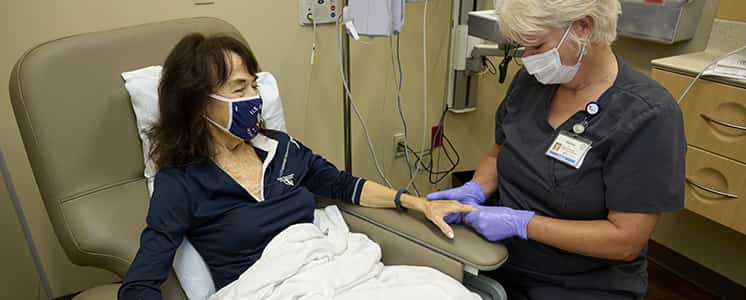
Remedial massage therapy is a specialized form of massage therapy focused on treating musculoskeletal conditions and injuries. Unlike some other forms of massage, such as relaxation massage, remedial massage therapists undergo specific training to diagnose and treat these conditions effectively. However, the regulation of remedial massage therapists varies significantly depending on the country or region.
In many countries, including Australia, Canada, and the United Kingdom, remedial massage therapists are regulated to ensure they meet certain standards of education, training, and practice. These regulations are put in place to protect the public and ensure that therapists have the necessary skills to provide safe and effective treatment.
Regulation in Australia: In Australia, remedial massage therapists are regulated by the Australian Health Practitioner Regulation Agency (AHPRA) under the umbrella of the Allied Health Professions. To practice as a remedial massage therapist, individuals must meet specific educational requirements and be registered with AHPRA. This registration ensures that therapists adhere to professional standards and undergo continuing education to maintain their skills.
Regulation in Canada: In Canada, the regulation of remedial massage therapists varies by province. Some provinces have established regulatory bodies, such as the College of Massage Therapists, which set standards for education, practice, and ethics. Therapists must be registered with these bodies to practice legally and use protected titles such as Registered Massage Therapist (RMT).
Regulation in the United Kingdom: In the United Kingdom, remedial massage therapists may be regulated by organizations such as the General Council for Massage Therapies (GCMT) or the Complementary and Natural Healthcare Council (CNHC). These organizations set standards for training, ethics, and professional practice. Therapists who meet these standards can become accredited or registered members, which enhances their credibility and assures clients of their qualifications.
Benefits of Regulation: Regulation of remedial massage therapists offers several benefits. It ensures that therapists have received adequate training and education, reducing the risk of harm to clients. It also promotes professionalism within the field, as therapists must adhere to codes of conduct and ethical guidelines. Regulation can enhance public trust in the profession and facilitate access to health insurance coverage for massage therapy services.
Challenges and Considerations: Despite the benefits, regulation of remedial massage therapy can face challenges. These may include variations in regulatory standards between regions, which can create barriers for therapists moving between jurisdictions. Additionally, the process of regulation itself can be resource-intensive for both regulatory bodies and practitioners.
In conclusion, while remedial massage therapy is regulated in many countries to ensure quality and safety, the specifics of regulation can vary widely. Prospective clients and practitioners should familiarize themselves with the regulatory framework in their jurisdiction to ensure that therapists meet the necessary standards for education, training, and practice. This ensures that remedial massage therapy continues to be a respected and effective treatment option for musculoskeletal conditions and injuries.
Do I need a referral to see a remedial massage therapist?
In most cases, you do not need a referral to see a remedial massage therapist. Remedial massage therapy is often sought out directly by individuals looking to address specific musculoskeletal issues, injuries, or chronic pain. Unlike some other healthcare professions that may require a referral from a physician or another healthcare provider, remedial massage therapists typically operate independently and can be accessed directly by clients.
Direct Access to Remedial Massage Therapy: One of the key advantages of remedial massage therapy is its accessibility. Many therapists operate in private practices, wellness centers, or healthcare clinics where clients can make appointments directly without needing a referral. This direct access can be particularly beneficial for individuals experiencing acute or chronic musculoskeletal conditions who seek prompt relief or ongoing management.
When Referrals Might Be Recommended: While referrals are not usually required, there are situations where a healthcare provider, such as a physician or physiotherapist, may recommend or provide a referral to a remedial massage therapist:
1. Complex Cases: For complex or severe musculoskeletal conditions, a healthcare provider may coordinate care with a remedial massage therapist to ensure comprehensive treatment.
2. Integrated Care: In cases where multiple healthcare professionals are involved in a patient’s treatment plan, a referral can facilitate communication and collaboration between providers.
3. Insurance Coverage: Some health insurance plans or worker’s compensation programs may require a referral for coverage of remedial massage therapy sessions. Checking with your insurance provider can clarify whether a referral is necessary for reimbursement.
Benefits of Direct Access: The ability to access remedial massage therapy directly offers several benefits to clients:
· Convenience: Clients can schedule appointments based on their own needs and availability, without delays associated with obtaining a referral.
· Timely Treatment: For acute conditions such as sports injuries or sudden onset pain, direct access allows for prompt treatment, potentially speeding up recovery.
· Choice of Practitioner: Clients can research and choose a remedial massage therapist based on their qualifications, experience, and specialty areas without restrictions imposed by a referral.
Educational and Professional Standards: Remedial massage therapists are trained to assess and treat musculoskeletal conditions through specialized education and practical experience. While direct access is common, therapists adhere to professional standards and ethical guidelines to ensure safe and effective care. These standards may include ongoing professional development to stay current with best practices in the field.

